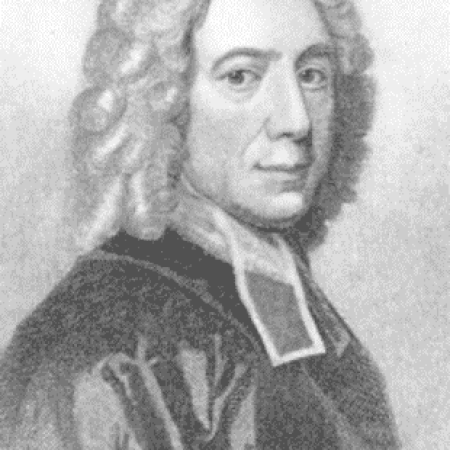Building works often awake interest in the history of the place in question. The congregation of the St Andrew’s United Reformed Church in The Avenue, Southampton, have seized the opportunity of a major refurbishment to create a multi-faceted programme that explores its history and presents it to the local community.
Directed by Dr Toni Griffiths, the Avenue 2020 project focuses particularly on the life and work of the hymn-writer Isaac Watts (1674-1748), whose statue stands in Southampton and also in Abney Park Cemetery, Stoke Newington, where he spent a good deal of his working life. His father, who was imprisoned for his non-conformist beliefs, was a minister in one of Avenue St. Andrew’s parent congregations, Above Bar Congregational Church (the history of the union can be found elsewhere).
Dubbed ‘the father of English hymnody’, Watts was educated at Edward VI School, Southampton, but was unable to go to university because of his non-Anglican beliefs. He wrote about 750 hymns, many of which have entered mainstream worship and been translated into numerous languages. He also wrote on logic and theology. Throughout his life he battled with a sickly constitution and during the period 1712-16 suffered a complete breakdown. He regarded poetry as a ‘divine gift’.
Avenue 2020, which is supported by the National Lottery Heritage Fund, is reaching out into the community by offering workshops with a local musician to encourage people to write their own songs or poems inspired by Watts’ work. It is also promoting research into the design principles of the Victorian non-conformist architect, James Cubitt (1836-1912), son of a Baptist minister, comparing his Avenue St Andrew’s of 1898 with his most famous church, Union Chapel, Islington of 1876-1889.
Resources for primary school education based on the church’s archives are also being developed by Avenue 2020. They highlight the story of how volunteers from Avenue St Andrew’s URC and the local community supported thousands of soldiers in Southampton before they embarked for France. [A recent pilot of the resources at Bevois Town Primary School, Southampton, had children enthused ‘writing letters home’, ‘getting hands-on with primary sources’, and exploring ‘trams and drill’!
The Avenue 2020 project is supported by local author Peter Jones, whose book, The Stormy Blast, is named after one of Watts’ best known poems, Our God, Our Help in Ages Past. It tells the story of five members of King Edward VI School, Southampton during WWI.
The Special Collections Archive at the Hartley Library, University of Southampton, are an important source for Watts, especially the MS52 and Cope Collections. They include an original bible owned by the Watts family, books by Watts, and accounts of the inauguration of the commemorative statue in Watts Park, Southampton.
A permanent record of the Avenue 2020 project will be created through the development of a heritage trail through the church sanctuary, using information banners based on Avenue 2020 project activities.
Contacts: 023 8067 8787; office@asaurc.org.uk; toniagriffiths@gmail.com .

